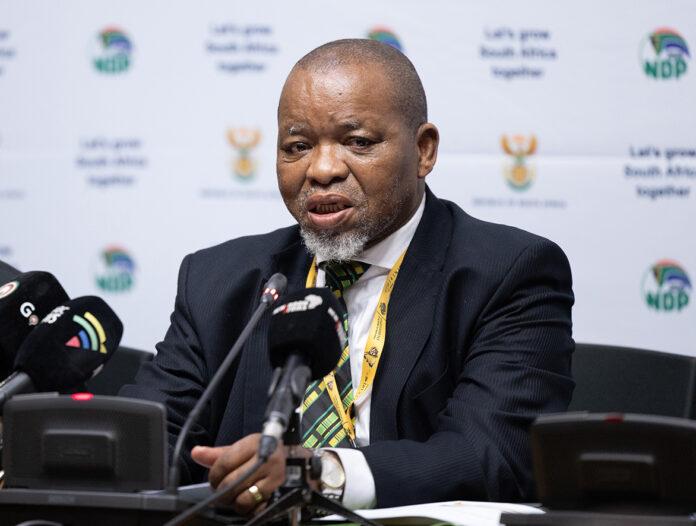The chief executive officer of the newly launched state-owned South African National Petroleum Company (SANPC), Godfrey Moagi, says the company will have to develop a “proper transformation strategy”.
The SANPC is a merger of iGas, PetroSA and Strategic Fuel Fund, which took place in Johannesburg on Friday.
Minerals and petroleum minister Gwede Mantashe said the merger would “allow the state to meaningfully participate in the oil and gas developments by optimising the operating assets and financial resources of these entities”.
“For far too long, the South African refining capacity has been largely held by international oil companies, with many of them pulling out of manufacturing, and many small to mid-scale refineries being converted to storage units.
“South Africa’s liquid fuels supply and economic stability are increasingly vulnerable,” Mantashe said.
Transformation in the sector has been a burning matter, which saw President Cyril Ramaphosa last October assenting to the Upstream Petroleum Resources Development Bill, saying it “seeks to accelerate petroleum exploration and development with participation by black South Africans, as part of the nation’s social and economic advancement”.
“The bill provides for the orderly development of petroleum resources and equitable access to and sustainable development of the petroleum resources, and enables active state and black persons’ participation in the development of the nation’s petroleum resources.”
Moagi told Sunday World on the sidelines of the launch of SANPC, “Sometimes I think we are not deliberate about [empowerment]. We leave them to chance. A clear transformation strategy is going to be key in how we drive these things.”
Moagi drew comparisons with the SANPC’s counterparts in Angola and Mozambique. “Angola’s oil reserves are estimated at nine billion barrels, while our reserves are estimated at 27 billion barrels. Angola employs 13 000 people, while we currently employ less than 2 000 people.
“This is because we have not developed our resources because people are getting in the way and taking the government to court,” Moagi said.
South Africa has four oil refineries, but only two are operational.
“In this [oil and gas] industry, after 30 years, we don’t have significant black players. If you go to Nigeria, you’ve got dollar millionaires who are participating in the oil and gas industry, and most of them are partnering with the National Petroleum Company of Nigeria.
“These companies are service providers. These services can range from security to running logistics to running upstream operations,” said Moagi.
He pointed out that the key to empowering businesses and creating jobs was to develop SANPC’s resources.
Moagi, however, pointed out stumbling blocks. “It is a pity that environmentalists think that it is either or… You can develop our resources and do it in a responsible way.”
He said among SANPC’s priorities would be to develop skills, jobs and resources to create opportunities for economically marginalised people.
SANPC chairman Sipho Mkhize said they would consider the best strategy of bringing in new upstream businesses like capital-intensive oil and gas exploration, and downstream businesses, which mainly include filling station owners.
“We’ll then develop a policy on how we bring them in. Initially, to minimise risk, we must move to a level where it is at least feasible, so that they don’t lose money. This means that we have to invite [upstream businesses] when we know that everything is ready for production in the future, and the market is also available to sell the products: gas of oil,” said Mkhize.



